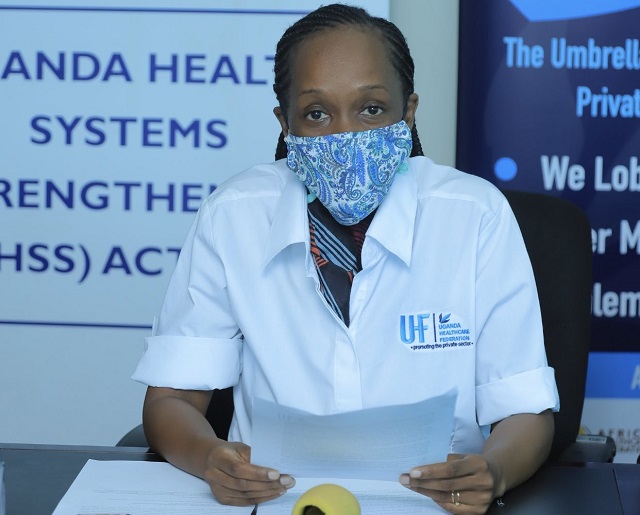
Kampala, Uganda | THE INDEPENDENT | Private health service providers are stuck with patients, many of whom cannot afford the cost of treatment, but have also refused to leave the facilities and seek medical attention elsewhere.
Grace Kiwanuka, the Executive Director for the Uganda Healthcare Federation says that since the height of the second COVID-19 wave where patients were charged high fees and in some hospitals, bodies were detained, they moved a daily updates directive for all their members.
In an interview with URN on Monday, Kiwanuka said that hospitals are reporting that even as patients are given daily updates on how their bill stands, many refuse to be referred early on to free government facilities even now when numbers in admission are very low, yet they know they will struggle to pay.
Kiwanuka’s comments come days after the Police’s Directorate of Criminal Investigations issued a directive to its officers to probe and apprehend all private providers overcharging, retaining patients and bodies of their clients for failure to clear medical bills. The Deputy CID Chief Paul Katto Tumuhimbise indicated that the practice of overcharging patients and holding them plus bodies is not only illegal but inhuman and should be stopped.
However, Kiwanuka says this memo was unnecessary especially now that they have come up with ways to ensure that the problem is solved. When it comes to detaining bodies, she said with guidance from their regulator, the Uganda Medical and Dental Practitioners Council (UMDPC), they have come up with payment plans that can allow families to settle the debt in installments agreed upon.
Dr Katumba Ssentongo, the registrar of the council told URN on Monday that they had made recommendations to the Ministry of Health on the charges which should be made public by the health minister soon. He said the police can only intervene when the issue has to do with the detention of bodies but cannot do much about the hospital charges.
He couldn’t divulge the details of their recommendations but already, the court had directed two months ago that the council offers direction to the government on the fees in a case filed by the Civil Society Organization Center for Health Human Rights Development (CEHURD). In response, UMDPC noted that while they had reports of hospitals illegally detaining patients, they had also recorded cases of patients and relatives of the dead disappearing for fear of taking the obligation of paying the accumulated medical fees.
As the ping-pong over medical fees that has had the intervention of many accountability entities including parliament and the State House Anti-Corruption Unit continues, Kiwanuka says this risks the sustainability of health service business.
Meanwhile, the Uganda Medical Association said the lasting solution for access to care and hospital charges has a lot to do with the public’s confidence in the quality of care that government provides.
Dr Richard Idro, the President of the Association said in an earlier interview that while the government had made a restocking plan of their facilities, many upcountry hospitals still operate without a functional Intensive Care Unit and their medical oxygen supplies were also still minimum yet they are vital in the management of critical COVID-19 patients.
*****
URN
 The Independent Uganda: You get the Truth we Pay the Price
The Independent Uganda: You get the Truth we Pay the Price



